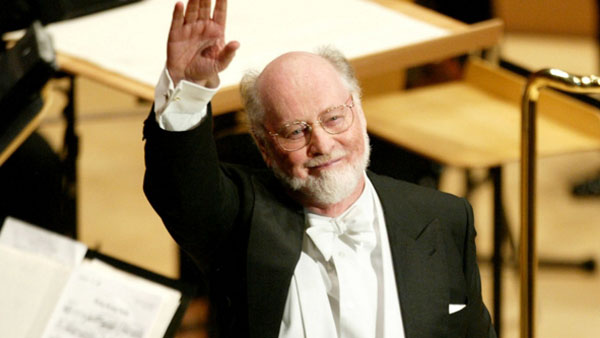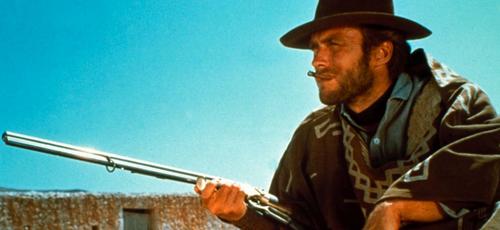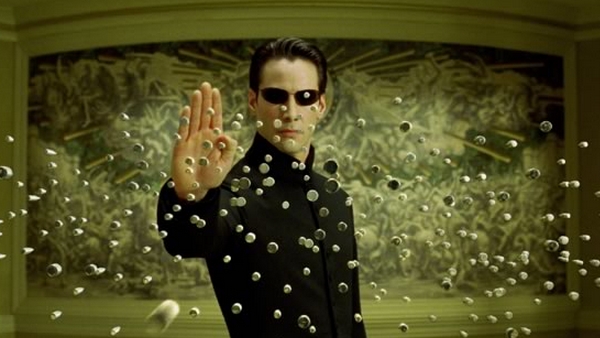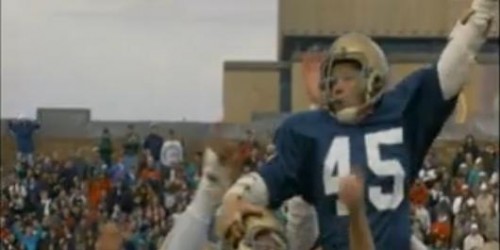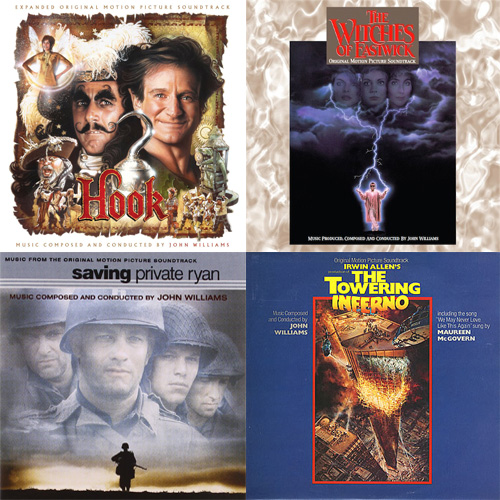 As I stated in our anniversary post (check it out here, it’s a really good read), 2015 has been a fantastic time to be a film fan. While the year didn’t quite hold as many game-changing blockbuster films as studios boasted (and fans or critics expected), most audiences were still plenty thrilled in theaters across the country. Mad Max: Fury Road and plenty more will be remembered for decades, but it just didn’t result in the “greatest Summer of all time” many wanted it to be.
As I stated in our anniversary post (check it out here, it’s a really good read), 2015 has been a fantastic time to be a film fan. While the year didn’t quite hold as many game-changing blockbuster films as studios boasted (and fans or critics expected), most audiences were still plenty thrilled in theaters across the country. Mad Max: Fury Road and plenty more will be remembered for decades, but it just didn’t result in the “greatest Summer of all time” many wanted it to be.
Regardless, in the entertainment world, if you end on a high note, people tend to forgive the missteps and mediocrity that came before. So while few ever expected John Williams to score another Star Wars film again (or hear both Williams’ and Ennio Morricone’s music in theaters in the same calendar year, let alone the same month!) 2015 is going to end with a real bang. It even makes me smile just writing the words “there is a new Star Wars film“, which opens today, so this FourScore is a bit of a tribute.
It’s no secret that Williams’ work went a long way in getting people interested in music. As such, being huge fans of symphonic music, it thrills us to put together a FourScore for the incomparable composer. Last year, we were honored to write a playbill essay all about him for the Dallas Symphony’s tribute concert (we feature it proudly in our side bar – click the link to read it here). But today, we seek to shine a light on Williams’ scores that don’t get as much appreciation or notoriety as his more famous titles.
There is one control factor. Since we’ve had John Williams featured in a few FourScore battles, (let’s face it, the guy’s my all time favorite composer) I have omitted obvious themes for Star Wars, Indiana Jones, Superman, Harry Potter and the like. But while Williams and his work are both legendary and iconic, he’s got an impressive resume of films spread fairly well across many different genres. Fun fact: He even scored episodes of Gilligan’s Island!
So, with that said, let’s find out which of Williams’ underrated works is the best. Which one will it be?? Find out below…
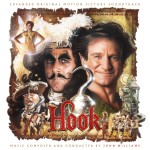 Hook– Yes, we’re all aware that this is not one of Spielberg’s best films (we hear he even cried on the way to the premiere while watching it in his limo) but we adore it, faults and all. One reason, obviously, is the music, which helped the film soar when many elements in the story didn’t. This is another utterly fantastic score from Williams that found the maestro at the top of his game. It goes without saying that Williams can find the intangible magic in any narrative. Who needs pixie dust when you’ve got this music?
Hook– Yes, we’re all aware that this is not one of Spielberg’s best films (we hear he even cried on the way to the premiere while watching it in his limo) but we adore it, faults and all. One reason, obviously, is the music, which helped the film soar when many elements in the story didn’t. This is another utterly fantastic score from Williams that found the maestro at the top of his game. It goes without saying that Williams can find the intangible magic in any narrative. Who needs pixie dust when you’ve got this music?
(Favorite Tracks: The Never-Feast, You Are the Pan and Farewell Neverland)
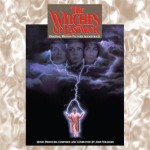 The Witches of Eastwick – An obscure one, and, in fact, often overlooked in the Williams catalog (just like Angela’s Ashes, Space Camp, StepMom and Nixon). But it’s that bit of dark whimsy that would later be called upon when writing themes for one of Hogwart’s most notable students. That’s right, the Harry Potter themes are certainly derivative of the fantasy sound he created here. Williams also has an uncanny knack for composing really captivating end credits music which not only reprises earlier cues, but greatly expands on them. In turn, they become something else entirely. E.T. is exemplary, but Eastwick is also an equally fine footnote in his catalog.
The Witches of Eastwick – An obscure one, and, in fact, often overlooked in the Williams catalog (just like Angela’s Ashes, Space Camp, StepMom and Nixon). But it’s that bit of dark whimsy that would later be called upon when writing themes for one of Hogwart’s most notable students. That’s right, the Harry Potter themes are certainly derivative of the fantasy sound he created here. Williams also has an uncanny knack for composing really captivating end credits music which not only reprises earlier cues, but greatly expands on them. In turn, they become something else entirely. E.T. is exemplary, but Eastwick is also an equally fine footnote in his catalog.
(Favorite Tracks: The Seduction Of Suki And The Ballroom Scene, Daryl Arrives, The Tennis Game, and End Credits [The Dance Of The Witches Reprise])
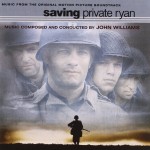 Saving Private Ryan – I really didn’t want to put two Spielberg films in this match-up, but this is very different from most of their collaborations – historical picture or not. New for Williams was this gritty war film which, rightly, side-steps efforts that would seem artificially heroic, or even adventurous. Saving Private Ryan had a real intensity, but more importantly, it was the calm moments (after the bullets and dust had settled) where Williams hits us with themes as dreary, somber and sobering as war itself. In battle there are no heroes, only survivors, and Williams know this. The reverence shows through in his music which brings tears to the eyes time and again. An underrated masterpiece, Williams is all aces here. Then again, when is he not?
Saving Private Ryan – I really didn’t want to put two Spielberg films in this match-up, but this is very different from most of their collaborations – historical picture or not. New for Williams was this gritty war film which, rightly, side-steps efforts that would seem artificially heroic, or even adventurous. Saving Private Ryan had a real intensity, but more importantly, it was the calm moments (after the bullets and dust had settled) where Williams hits us with themes as dreary, somber and sobering as war itself. In battle there are no heroes, only survivors, and Williams know this. The reverence shows through in his music which brings tears to the eyes time and again. An underrated masterpiece, Williams is all aces here. Then again, when is he not?
(Favorite Tracks: Hymn To The Fallen, Approaching The Enemy, and The Last Battle)
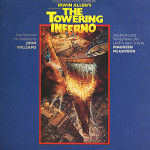 The Towering Inferno – Disaster flicks were all the rage in the ’70s, and while the visuals don’t stand the test of time, the music most certainly does. In this story about people surviving a major metropolitan catastrophe, Williams captures the essence of the emotions on screen and draws us closer to the characters – every shaky step along the way. Do you think those magical, heartfelt, or somewhat haunting trumpet runs in films like Superman, and even Catch Me If You Can just appeared out of the blue? No, John used his jazz background to piece together scores of notes into wonderful melodies starting with this as well as Mark Robson’s similarly themed film, Earthquake.
The Towering Inferno – Disaster flicks were all the rage in the ’70s, and while the visuals don’t stand the test of time, the music most certainly does. In this story about people surviving a major metropolitan catastrophe, Williams captures the essence of the emotions on screen and draws us closer to the characters – every shaky step along the way. Do you think those magical, heartfelt, or somewhat haunting trumpet runs in films like Superman, and even Catch Me If You Can just appeared out of the blue? No, John used his jazz background to piece together scores of notes into wonderful melodies starting with this as well as Mark Robson’s similarly themed film, Earthquake.
(Favorite Tracks: Main Title, Trapped Lovers, and Planting the Charges and Finale)
FourScore Ruling:
So which is the best of these lesser thought of Williams efforts? Tough to choose. Really, though, it’s impossible to single out any Williams score no matter how you categorize or filter his work. However, as most composers find the bones of many, many future scores early in their careers, we have to give it to the one that found Williams hitting his stride. If it weren’t for The Towering Inferno, we wouldn’t have Jaws and everything that followed. Thank you Mr. Williams! Thank you, thank you, thank you!!
They broke the mold when they made John, that’s for sure!
